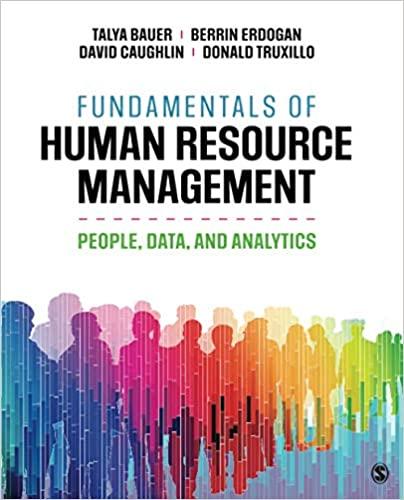You are a manager at a small firm with 85 employees. Not long ago, your firm had
Question:
You are a manager at a small firm with 85 employees. Not long ago, your firm had just 15 employees, and it felt like a big family more than a workplace. But as you’ve grown, the “family feeling” has dissipated. You just heard from your good friend Robert that employees are starting to complain about management not listening to them or caring about them. He has even heard some talk about interest in considering a union to make sure that they are heard.
Given the highly competitive market your firm competes in and how slim the profit margins are, you are worried that the potential move to a union would be devastating and result in people actually losing their jobs if the firm couldn’t afford to give everyone raises and instead had to lay people off. When you talk to your boss, Kelvin, he says that you are 100% right.
There is no way that the firm would survive becoming a union shop, and you must do everything you can to stop the employees from unionizing.
You keep thinking back to your HRM course from 7 years ago and have a lingering concern that this may not be legal, but you aren’t sure. You want to do what is best for the firm and the employees, but you aren’t sure what that is.
Questions
1. What kind of actions are you legally able to take in this situation?
2. What would you tell your boss, Kelvin, if anything?
3. How common or unique do you think this situation is? In other words, how likely is it that dealing with this type of situation might happen to someone taking an HRM course at some point in their career? Please discuss your rationale.
4. Are there any systemic changes you could think of that might help prevent more concerns like these from happening in the future?
Step by Step Answer:

Fundamentals Of Human Resource Management People Data And Analytics
ISBN: 9781544377728
1st Edition
Authors: Talya Bauer, Berrin Erdogan, David E. Caughlin, Donald M. Truxillo





